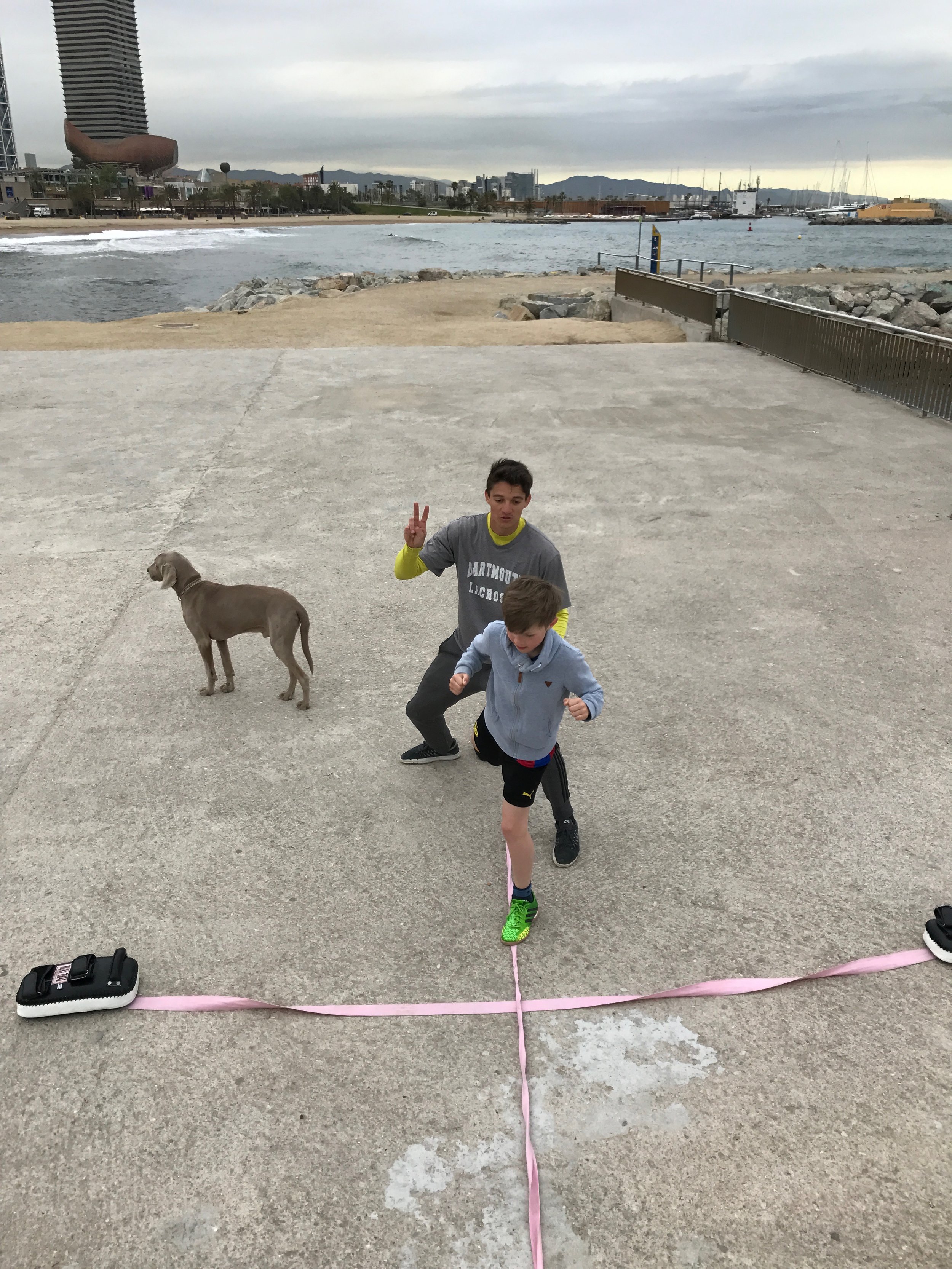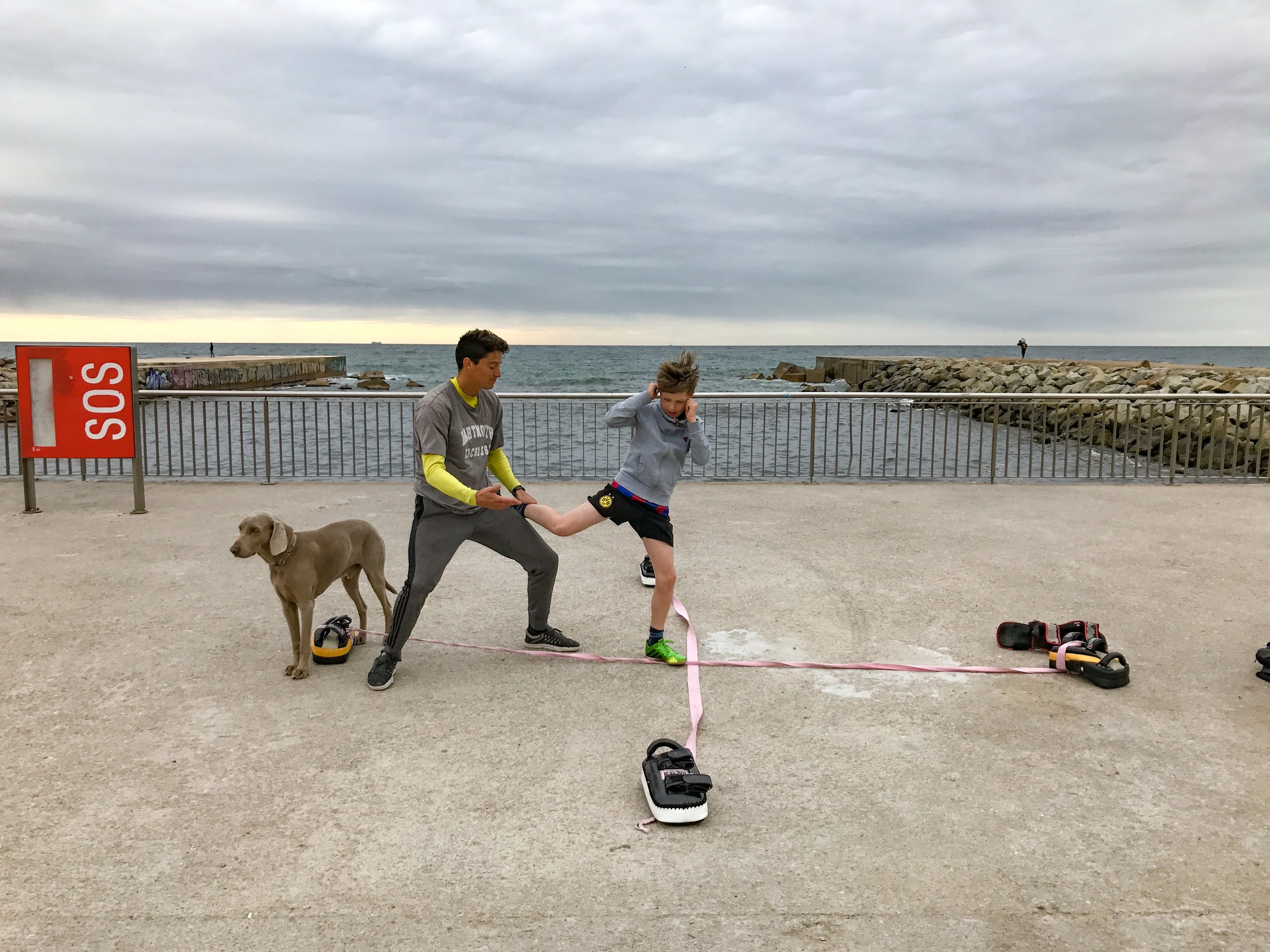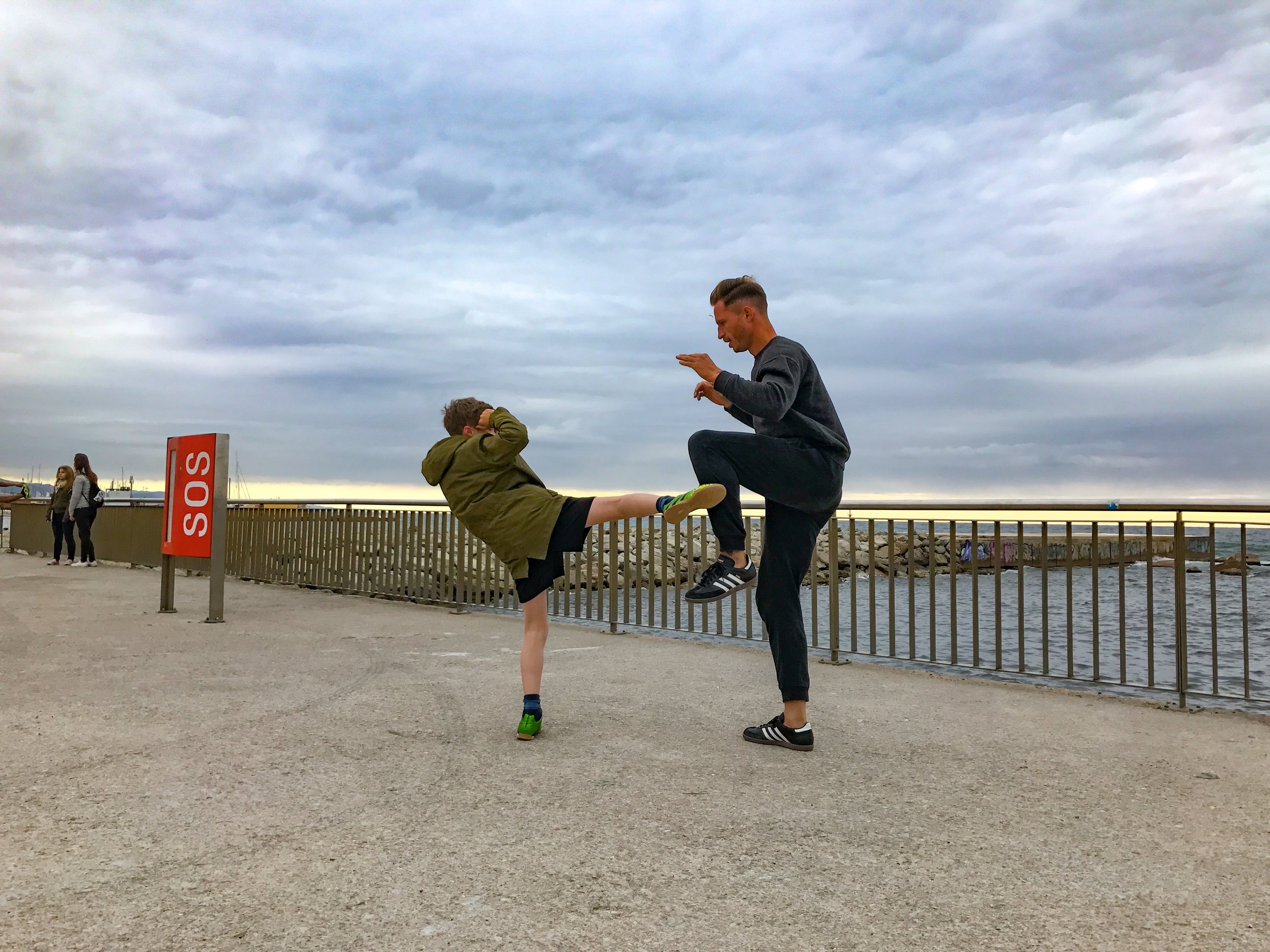Will Thai boxing make my child or even me violent?
Teaching a 9 year old how to kick and elbow people may seem crazy to many parents. But here at Everest Mindful Thaiboxing that's exactly what we do. In line with all the studies, we are happy to report that Muay Thai doesn't teach violence but in fact discipline, self control and respect.
There’s no shortage of studies, the general consensus points to a link between practicing martial arts and improved self-confidence, ability, decreased aggression and a sense of being connected. Of course, the school and instructor teaching are a massive part of this, in Barcelona I have personally experienced instructors where a pacific ethos doesn’t seem to be key for them, we believe we reinforce it at Everest by combining the spiritual practices of breathing exercises and meditation as an integral part of every class.
An instructor who emphasizes mutual respect, personal dignity, perseverance, and does so kindly and mindfully, is going to have a more positive impact on an instructor who is reactive or punitive. But that’s the case no matter what’s being taught. Therefore at EMT the emphasis is proper technique, of course, but equally on personal responsibility, goal setting and respect.
Anecdotally, we can tell you that we haven’t had any experiences with kids starting Muay Thai, and suddenly picking fights on The Ramblas or trying to intimidate classmates. Our kids know when to listen and understand the difference between playtime and class time. Our students learn discipline and respect, and they get the benefit of regular physical and mental exercise. They’re polite and well-mannered and humble, and we’re proud of all of them, as are their parents who in some problematic cases have seen improvements in their childs behaviour.
We can tell you that our classes don’t make kids violent or aggressive, but the best way to make the right decision for your child is to come see EMT for yourself. Visit our classes, meet our instructors, and talk to other parents as mentioned above. Watch the dynamic in our classes – listen to the instructors and observe the students. That will tell you much more than we can in a blog post.
Aside from kids and on a more global level we believe martial arts diminish violence, as opposed to "creating" it. This is not because practitioners are necessarily more morally fit, more disciplined, or more ethical by virtue of learning to pummel their fellow human beings. It is rather for three reasons, which apply equally well to both sorts of martial artists.
1 - The perfection of martial skill involves a direct, experiential understanding of pain, and sometimes an understanding of death. No one gains this understanding without ultimately learning something about the nature of violence. This understanding is ultimately a path to non-violence.
2 - Martial Arts allows us to explore and understand the nature of our own fear and potentially, to understand the effect that it has on our actions, our reactions and our abilities. When practiced over time, this knowledge extends to an understanding of others' fear and its effect on their reactions. This knowledge becomes the cornerstone of non-violence.
3 - The process of acquiring martial skill is a mentorship. Be design, it is a discipline that requires the presence of someone with a greater understanding of both of the above truths. Any mentorship presupposes that there is someone to guide our actions, and potentially, to exercise some judgement and control over them.
It is that influence more than anything else, which distinguishes martial arts from violence for violence's sake.




